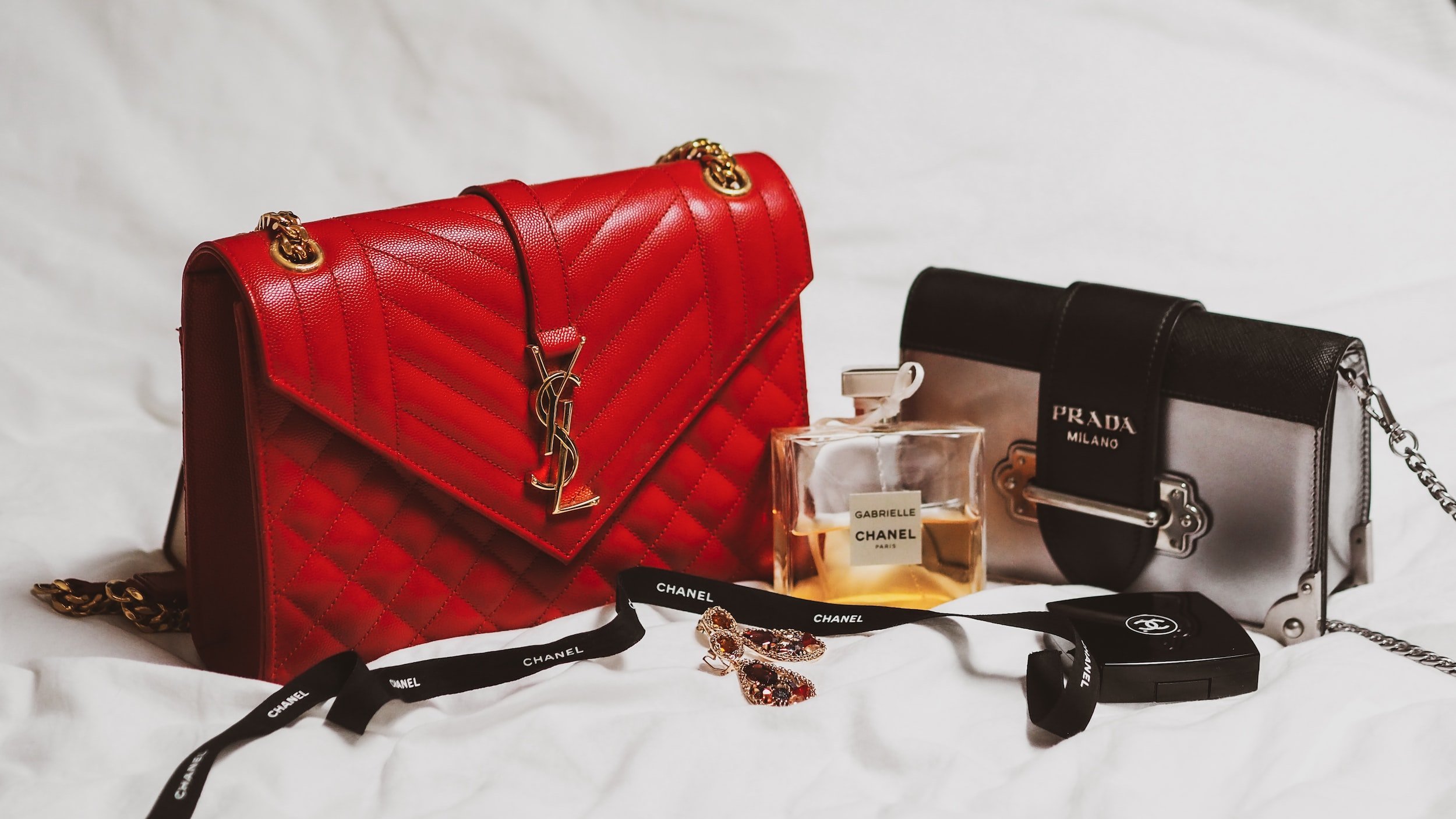Why Are Korean's Obsessed With Luxury Brands? Understanding "The Neighbor Effect"
Why are Korean's obsessed with luxury brands? Discover the reasons behind and look into the societal influences driving this cultural phenomenon.
Author:Xander OddityReviewer:Dr. Felix ChaosphereFeb 13, 20249.6K Shares128.7K Views

In recent years, South Korea has garnered attention for its fervent obsession with luxury brands. From K-Pop idols to everyday citizens, the allure of high-end fashion has permeated Korean society, becoming a symbol of status and success. This phenomenon has been dissected by university professors and cultural analysts, shedding light on what lies beneath this apparent obsession.
So, why are Korean's obsessed with luxury brands?
The Rise Of Luxury Culture In Korea
The fascination with luxury brands in South Korea can be traced back to the country's rapid globalization in the 1980s. As Korea gained access to foreign luxury goods and overseas travel became more common, the desire for high-end products surged. Seoul, in particular, emerged as a globalhub for luxury brands, boasting a plethora of outlets and earning the title of a luxury brand haven.
According to Seo Won Seok, an economics professor at Kookmin University, the economic growth of Korea played a pivotal role in fueling this obsession. As disposable incomes rose, so did spending on luxury goods, which quickly became synonymous with social status and affluence.
Seok remarks, "Korea’s economic strength has considerably grown since the mid-1980s and overseas travel became allowed—enabling Koreans to explore the world of foreign luxury goods."
The Symbolism Of Luxury Goods For Koreans
For many Koreans, luxury goods are more than just accessories; they are symbols of success and achievement. Major life events, such as weddings, serve as platforms for showcasing these prized possessions.
Chanel's Classic Handbag and Louis Vuitton's Speedy 30 have become iconic symbols within Korean culture, earning nicknames like the "wedding guest bag" and the "three-second bag" respectively.
However, beneath the surface of this obsession lies a darker reality. As revealed by Seoul housewife Kim Soo Jin, there is immense pressure, especially among women in their thirties, to own at least one luxury item. For some, the allure of luxury is so strong that they resort to purchasing knockoffs to maintain appearances, inadvertently perpetuating a cycle of deceit and discontent.
Kim Soo Jin shares her insight, "There is an obsession among Koreans, especially women, to own at least one luxury item if they are in their thirties. Having luxury goods reflects their economic status, and many would even consider using knock-offs as an alternative."
What Is Korea's "The Neighbor Effect"?
At the heart of Korea's obsession with luxury lies the "neighbor effect." Coined by Jeonbuk National University professor Kang Joon Man, this phenomenon describes the constant competition among Koreans to outshine their neighbors in terms of social status and wealth. In a society characterized by high homogeneity and dense residential communities, the desire to climb the social hierarchy through luxury consumption becomes deeply ingrained.
Professor Kang Joon Man explains, "Korea’s high social and cultural homogeneity, along with its dense residential communities, has fostered a culture of comparing with neighbors in daily life. The ‘neighbor effect,’ which hinges on finding life satisfaction through comparing oneself to others, plays a significant role in drivingthe desire for owning luxury goods."
The neighbor effect drives individuals to derive satisfaction from comparing themselves to others, often leading to a relentless pursuit of material possessions. In Korea, owning luxury goods is not just about personal enjoyment but also about signaling one's place in the social pecking order.
The Enduring Obsession
Despite the criticisms and controversies surrounding Korea's obsession with luxury brands, there seems to be no end in sight. In fact, the luxury market in Korea has remained resilient even in the face of global economic challenges, doubling the sales of brands like Moncler amidst the pandemic.
As luxury consumption continues to thrive, it is essential to unravel the complex web of cultural and social factors driving this phenomenon. Only by understanding the neighbor effect and its implications can we begin to address the underlying issues and strive for a more balanced and fulfilling societal narrative.
With each purchase of a luxury item, Koreans reaffirm their place in the social hierarchy, perpetuating a cycle of consumption driven not solely by personal desire but also by societal pressure and the need for validation.
Until this underlying dynamic is addressed, Korea's obsession with luxury brands is likely to endure, leaving both its citizens and observers to ponder the true cost of keeping up appearances in a society driven by the neighbor effect.
Why Are Korean's Obsessed With Luxury Brands FAQs
Why Do Koreans Have Such A Strong Obsession With Luxury Brands?
Koreans view luxury brands as symbols of success and social status. The rapid globalization of South Korea in the 1980s opened doors to foreign luxury goods, fostering a culture where owning such items became highly desirable.
How Do Luxury Brands Feature In Korean Society?
Luxury brands are prominently displayed, especially during major life events like weddings. They are seen as status symbols and are often flaunted to showcase one's economic standing and success.
What Role Does The Neighbor Effect Play In Korea's Obsession With Luxury Brands?
The neighbor effect refers to the constant comparison with peers to showcase higher social status. In Korea's homogeneous and densely populated communities, this drive to outshine neighbors fuels the desire for luxury goods.
Are Luxury Brands Seen As Essential In Korean Culture?
Yes, owning at least one luxury item, especially for women in their thirties, is considered a social expectation. It reflects economic status and societal validation.
How Does Social Media Influence Korea's Obsession With Luxury Brands?
Social media platforms amplify the visibility of luxury items worn by K-Pop idols and influencers. Breakdowns of outfits and costs are widely shared, contributing to the allure of luxury brands.
Do Koreans Resort To Purchasing Knockoffs Of Luxury Brands?
Some Koreans feel pressured to maintain appearances and may opt for knockoffs to fulfill societal expectations. However, this practice can lead to feelings of dissatisfaction and perpetuate a cycle of deceit.
What Drives The Continuous Growth Of The Luxury Market In Korea?
Despite economic challenges, the luxury market in Korea remains resilient. The neighbor effect, coupled with the societal importance placed on luxury goods, fuels continued growth and demand.
How Do Luxury Brands Influence Korean Consumer Behavior?
Luxury brands influence consumer behavior by shaping perceptions of social status and success. Many Koreans derive satisfaction and validation from owning these items, contributing to their continued popularity.
Are Luxury Brands Accessible To All Koreans?
While luxury brands are aspirational for many Koreans, accessibility varies. Some may prioritize saving to afford luxury items, while others may settle for knockoffs to fulfill societal expectations.
Is There A Cultural Shift Towards Reevaluating Korea's Obsession With Luxury Brands?
While discussions surrounding the negative impacts of Korea's obsession with luxury brands have surfaced, there's no significant cultural shift yet. However, increased awareness may lead to reevaluations in the future.
Conclusion
So why are Korean's obsessed with luxury brands and what is the neighbor effect? The neighbor effect offers valuable insight into the complex relationship between Koreans and luxury brands.
As society continues to evolve, it is essential to critically examine the underlying motivations driving consumer behavior and strive for a more balanced approach to material wealth and social status. By addressing the root causes of the neighbor effect, we can work towards building a society where personal worth is not defined by material possessions but by intrinsic values and genuine connections.

Xander Oddity
Author
Xander Oddity, an eccentric and intrepid news reporter, is a master of unearthing the strange and bizarre. With an insatiable curiosity for the unconventional, Xander ventures into the depths of the unknown, fearlessly pursuing stories that defy conventional explanation. Armed with a vast reservoir of knowledge and experience in the realm of conspiracies, Xander is a seasoned investigator of the extraordinary.
Throughout his illustrious career, Xander has built a reputation for delving into the shadows of secrecy and unraveling the enigmatic. With an unyielding determination and an unwavering belief in the power of the bizarre, Xander strives to shed light on the unexplained and challenge the boundaries of conventional wisdom. In his pursuit of the truth, Xander continues to inspire others to question the world around them and embrace the unexpected.

Dr. Felix Chaosphere
Reviewer
Dr. Felix Chaosphere, a renowned and eccentric psychiatrist, is a master of unraveling the complexities of the human mind. With his wild and untamed hair, he embodies the essence of a brilliant but unconventional thinker. As a sexologist, he fearlessly delves into the depths of human desire and intimacy, unearthing hidden truths and challenging societal norms.
Beyond his professional expertise, Dr. Chaosphere is also a celebrated author, renowned for his provocative and thought-provoking literary works. His written words mirror the enigmatic nature of his persona, inviting readers to explore the labyrinthine corridors of the human psyche.
With his indomitable spirit and insatiable curiosity, Dr. Chaosphere continues to push boundaries, challenging society's preconceived notions and inspiring others to embrace their own inner tumult.
Latest Articles
Popular Articles

